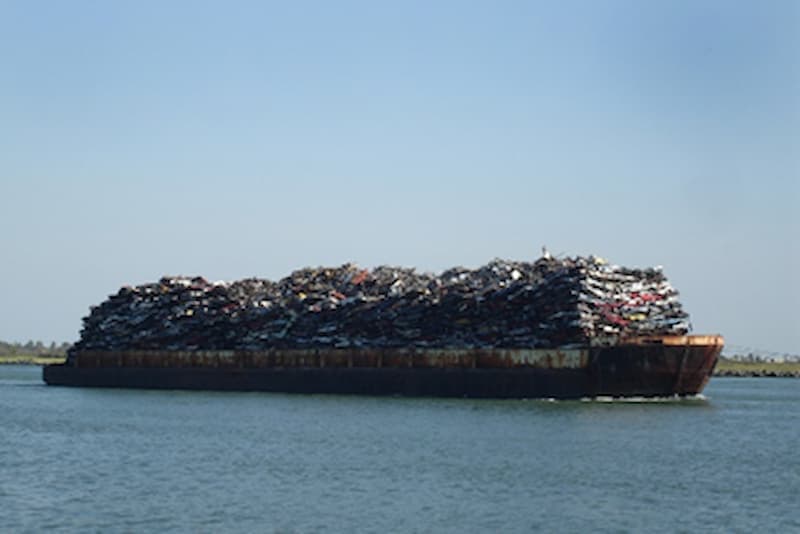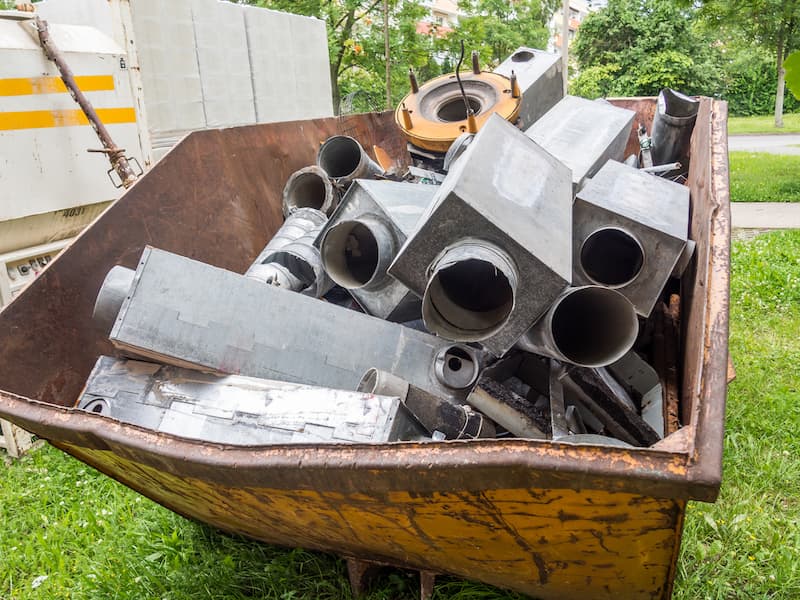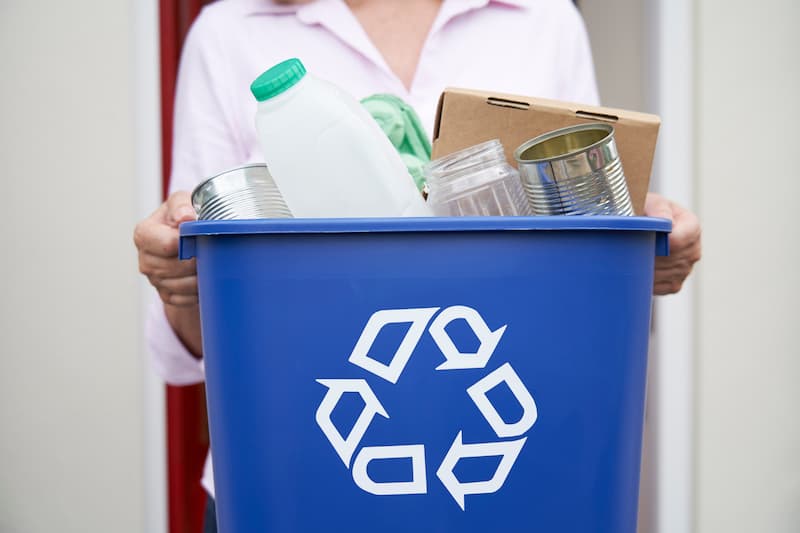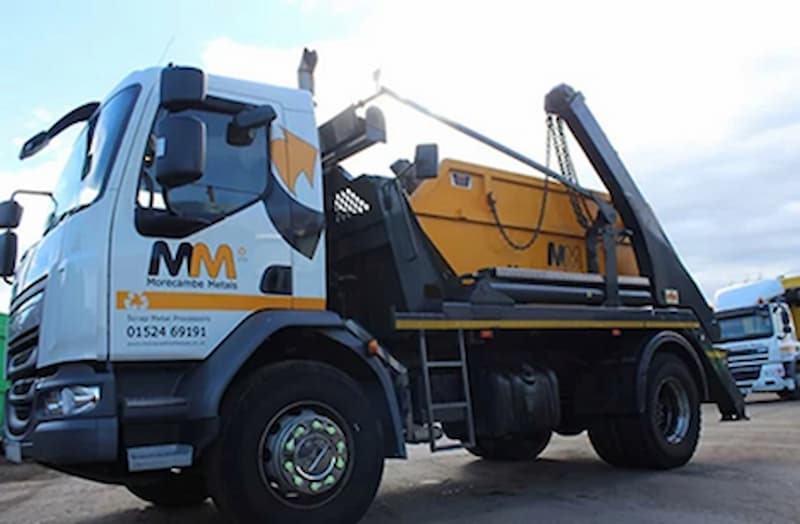The scrap metal recycling industry is crucial in preserving natural resources, creating job opportunities, and contributing to the global economy. However, it faces numerous hurdles that obstruct efficient scrap metal reclamation and pose widespread concerns.
As an experienced leader in the metal recycling industry, we’ll cover the various obstacles that impede the industry’s growth and sustainability, revealing the challenges endured by the scrap metal recycling sector.
Intense Competition from Overseas Markets
The scrap metal recycling industry is experiencing an influx of imported scrap metals from countries with lower production costs. Emerging economies like China and India are increasingly supplying the global market with cheaper scrap metal materials due to inexpensive labour and relaxed operational costs. This wave of imports is disrupting the local market dynamics, driving down domestic prices due to the enhanced competition.
Despite offering diversity in the metal supply chain, this surge profoundly impacts local businesses, particularly small and medium-sized enterprises, who struggle to compete against the price points of these low-cost countries. Consequently, these businesses may face revenue loss, reduced profitability, and, in extreme cases, bankruptcy, all destabilising the local industry and its associated employment.
Export Barriers and Trade Wars
International trade, particularly scrap metal export, is subject to various restrictions and tariffs set by governing bodies to protect local industries and maintain market balance. However, these restrictive measures often impose significant challenges to the scrap metal recycling industry, constraining its growth potential. High tariffs can reduce the competitiveness of recycled metal exports, making it harder for these businesses to penetrate foreign markets.
Similarly, political scenarios like trade wars introduce further volatility into the industry. A prime example is the trade tensions between the US and China in 2019, leading to higher tariffs and decreased exports, directly impacting the profitability of scrap metal companies.
Furthermore, trade policies and market conditions are subject to abrupt changes, creating an atmosphere of uncertainty. This instability hampers strategic decision-making, investment planning, and overall business development, potentially stunting the industry’s progress and sustainability.
Lack of Access to Collection and Processing Facilities
The scarcity of accessible and efficient scrap metal collection centres is a significant obstacle to global recycling efforts. A lack of conveniently located collection centres can discourage individuals and businesses from participating in recycling initiatives, subsequently decreasing the volume of recycled scrap metals. As the area’s leading scrap metal recycling services, we have overcome this with our commercial metal recycling services. We can conveniently collect large amounts of scrap metal for a business that may be too busy to bring it to our facilities.
Our scrap metal collection services also solve the issues of transporting scrap metal to our facilities. The transportation of scrap metals from the source to the recycling centres poses logistic challenges. Route planning, fuel costs, vehicle maintenance, and state and federal transport regulations can significantly impact the overall transport cost. Additionally, logistical issues like traffic congestion and long-distance haulage reduce the convenience and add to the cost of scrap metal collection, ultimately limiting the profitability of recycling efforts and the industry’s growth potential.
Public Misconceptions About Scrap Metal Recycling
Despite the notable environmental and economic benefits, multiple myths and misconceptions can often cloud public understanding of scrap metal recycling. Some people believe that recycling consumes more energy than it saves. In contrast, others labour under the misconception that all metals are the same, overlooking the different recycling processes that various metals demand, such as the difference between ferrous metal and non-ferrous recycling.
These misunderstandings can significantly impact public willingness to participate in recycling initiatives, ultimately hindering the effectiveness of recycling programmes. A lack of understanding about what can be recycled may lead to underutilisation of available recycling schemes or incorrect disposal of recyclable waste.
However, the reality is dramatically different. Campaigns such as MetalMatters offer substantial counterpoints to these misconceptions. This initiative, aimed at promoting curbside recycling, has helped enlighten many households about the correct practices of scrap metal recycling and its critical role in environmental sustainability. Such educational campaigns, alongside persistent public engagement, can go a long way in debunking common myths and boosting recycling efforts across communities.
Insufficient Education and Training
Awareness campaigns and training are pivotal in enhancing public understanding of the scrap metal recycling industry. They dispel misconceptions, motivate responsible recycling habits, and highlight the industry’s environmental and economic impact.
To bridge the existing knowledge gap, educational initiatives targeting all demographics, from school programs to workplace training, are invaluable. Community workshops and accessible online information about recycling procedures and benefits can promote public involvement. At Morecambe Metals, we strive to keep our customers and the general public well-informed with various articles about the scrap metal recycling industry, our work and why it is so vital in today’s economy.
Corporate Social Responsibility and Industry Stakeholders
Businesses within the scrap metal recycling industry carry a significant responsibility in promoting ethical and sustainable practices. From responsible sourcing and processing of scrap metal to adherence to environmental standards, businesses play a key role in shaping the ethical and environmental landscape of the industry.
Awareness-raising efforts about these practices are beneficial not only for the environment but also for the businesses themselves, enhancing their social standing and potentially attracting increased patronage from environmentally-conscious consumers and partners. The more businesses get involved and assist with raising awareness promoting ethical conduct and sustainability in business operations, the more profound and far-reaching implications for the industry and society as a whole.
Reduce, Reuse and Recycle with Morecambe Metals
Scrap metal recycling is integral to mitigating climate change and generating a circular economy. By understanding the challenges faced by the industry and taking proactive steps to address them, we can enhance scrap metal reclamation efficiency and contribute positively to global sustainability goals. The road ahead for the scrap metal recycling sector is fraught with obstacles, but with sustained efforts, increased awareness, and progressive solutions, we can overcome those hurdles and secure a better future for our planet.
At Morecambe Metals, we’re dedicated to providing tailored recycling solutions that meet the demands of diverse businesses. For example, our efficient end-of-life vehicle recycling process is vital for organisations with a high volume of older vehicle turnaround. We provide a seamless recycling solution, ensuring the waste becomes a valuable resource. For more information on any of our services for businesses or domestic, feel free to get in touch today.







